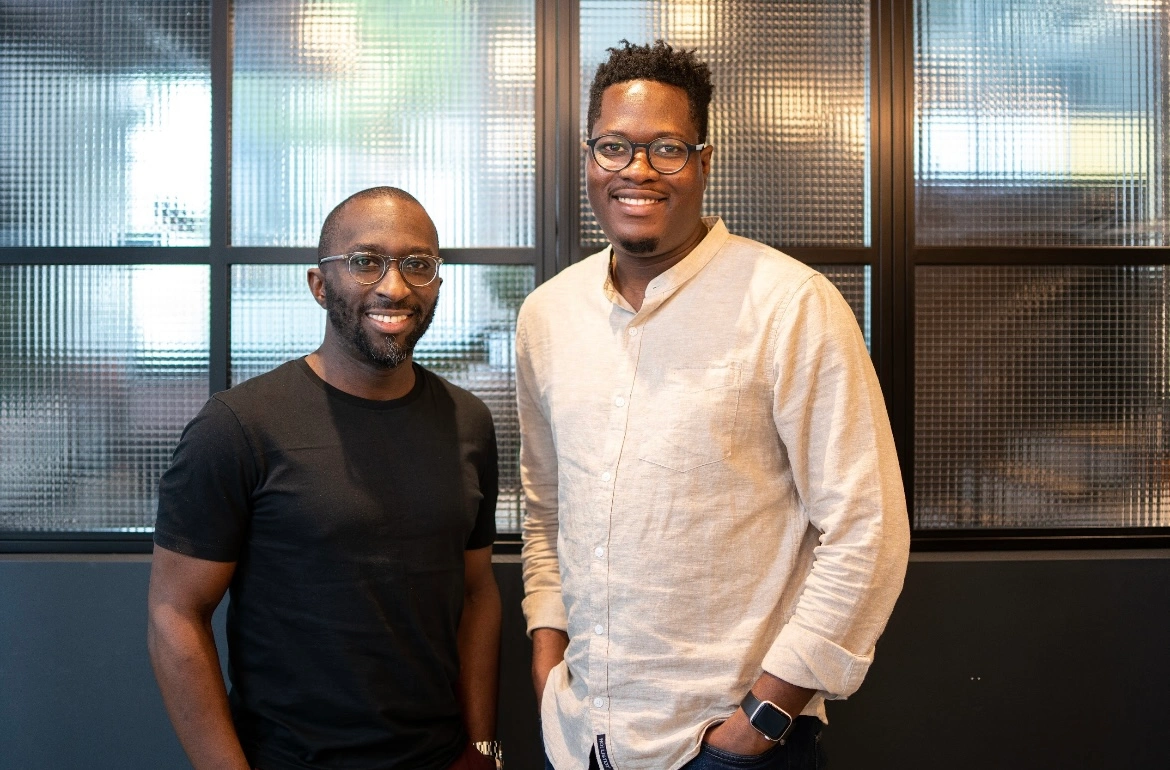Seni Sulyman and Kayode Oyewole, two experienced operators in the African tech ecosystem, have partnered to launch Talstack, a B2B SaaS learning platform.
Seni Sulyman’s experience in the global tech ecosystem has seen him work for different organisations like Hewlett-Packard Enterprise, Bellhop, and Konga. But it was his time as the VP of global operations at Andela, a talent company and one of Africa’s unicorns, that led him to partner with Kayode Oyewole, a former partner at Ventures Platform, to launch Talstack, a B2B SaaS company that delivers content, tools, and other infrastructure to support and upskill talents.
“Kola Aina [founder of Ventures Platform] introduced us. I have been bouncing this idea off him for two years, and he told me that Kayode also had a very similar idea. So Kayode and I spoke for 3/4 months, and we agreed that this problem was the largest problem on the continent today and also the biggest opportunity for us, and that it was super urgent,” Sulyman said.
Talstack has currently raised an $850,000 pre-seed round, which was led by Ventures Platform. “We initially went out to raise $650,000 to prove our initial hypothesis that bite-size learning with more contextual contents by experts who have actually done stuff in Africa is going to be more valuable for an African audience and, secondly, that companies are going to pay for it. We saw a lot of demand from investors who understood the problem, which led us to close the round a little higher at $850k,” Sulyman shared.
Discovering the problem
“I discovered this problem through firsthand pain and suffering,” Sulyman told me. He explained that at the peak of his team at Andela, he was responsible for 1,500 employees ranging from operational roles to marketing, and one of his biggest problems was upskilling his team. He initially started out solving this problem by directly mentoring the team when it was smaller, but as the team grew, he outsourced mentoring to his contacts at other companies. However, he quickly found out that this method did not work at scale.
“As we got bigger, it became incredibly hard to do that, and I started seeing different talent gaps on the team, not just in Nigeria but across our portfolio in Kenya, Uganda, and Rwanda,” Sulyman said. According to a report by the IFC, there is a strong demand for digital skills in sub-Saharan Africa, and almost half of the jobs in the region require some digital skills. The World Economic Forum also estimates that only 33% of technology jobs worldwide are filled by the necessary skilled labour. This problem has led CEOs to view investment in technology as a priority area and plan to upskill their workforce to optimise and minimise risk, according to this PWC report.
Sulyman added that this problem affected Andela’s productivity, output, and growth. “Even though Andela was a success story, I know there was more room for our people to grow. As a manager, it is extremely painful to watch your team have growth opportunities, or gaps, that are affecting performance and outputs, and you don’t have good solutions to solve them.”
For Oyewole, as a founding member of Ventures Platform who invested in over 100 companies, he realised that “the second biggest problem for every company we met and interacted with was just the quality of their team.” He added that, “It was a constant problem that I saw every single time we invested in companies; they were deeply concerned about the quality of their talent and how to get their employees to the point where they’re great enough to deliver the kind of return-on-investment that a company needs to capture value in the market.”
Oyewole first encountered this problem as a manager at MAX.ng and then at Ventures Platform. He explained that he tried to solve this problem by sharing courses on e-learning platforms like Coursera and Udacity with his team, but he realised that his employees never took the courses he shared or did not finish them. “The constant feedback I got was that the courses were complex. They started the courses and couldn’t understand what was being taught because it was either not relatable, too hard, the examples were foreign, or the course was just boring,” he shared.
Solving the problem
With both of them encountering the same problem and realising that their initial approaches to solving it were ineffective, Oyewole told me that they both realised that a different approach was required. “It became obvious to me that we need to build something that helps people get upskilled in certain areas, but we have to do it in a way that is fundamentally different from whatever exists today.”
Like most of Oyewole’s former employees, I have also been guilty of starting courses and not following through with them. Platforms like Coursera, LinkedIn Learning, and Udemy use the traditional schooling approach, where a lecture is taught for hours and students take notes. With the average attention span for a human being 47 seconds, this approach might not be effective for today.
“We’ve redesigned the learning process; as opposed to sitting through a 2 hour long class, our courses are broken down; they’re bite sized. They are broken down into small chunks of five minutes or less, and what that means is that within traffic, within grabbing that coffee at work, you can essentially watch two or three videos on how to do something,” Oyewole said.
“The second thing is that we’ve also made our courses very relatable. Our courses are taught by Africans for Africans, so the content is easy to understand, the examples are very relatable, and the nuance is very relatable. You can also situate yourself within the context of the speaker, because when we give you those examples, you can relate to them. Our courses are also very actionable; you can watch a five-minute video and be able to apply it to your work almost immediately. As a learner, we give you a checklist to use when you want to implement what you’ve learned. So let’s assume we’ve taught you a course on how to run meetings. You might forget 70% of what we’ve taught you, but with our checklist, if you want to organise your meeting two weeks from now, you just need to go back to the course and download the checklist. The checklist is like a guide that says when next you want to organise your meeting, these are the things you need to remember,” Oyewole added.
To find the experts that would teach the learners on Talstack, Sulyman said that Talstack had to find people with real-world experience. “If it’s marketing or sales, we know the people that have done marketing at Paystack and Paga, so we can create bite-sized content with those people that you can then benefit from,” Sulyman explained.
How does Talstack work?
As a B2B company, Talstack works with companies by selling learning content to them. Employees can then pick what they want to learn by selecting the areas they want to learn about. “You can think of it as Netflix for learning content,” Sulyman said. The courses are pre-recorded and Talstack also has a pre-assessment test that employees can use to help build their own unique learning path.
Talstack also selects experts who can use its platform to teach. “We pick the best people we think can teach a particular course, and we work with them internally to build out that course on our platform. Because of this, the course is exclusive to our platform,” Sulyman explained. To make money from the content, companies pay a subscription fee to Talstack. From this subscription fee, Talstack then pays the experts on its platform.
What do you think about our stories? Tell us how you feel by taking this quick 3-minute survey.





















